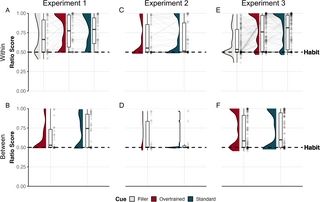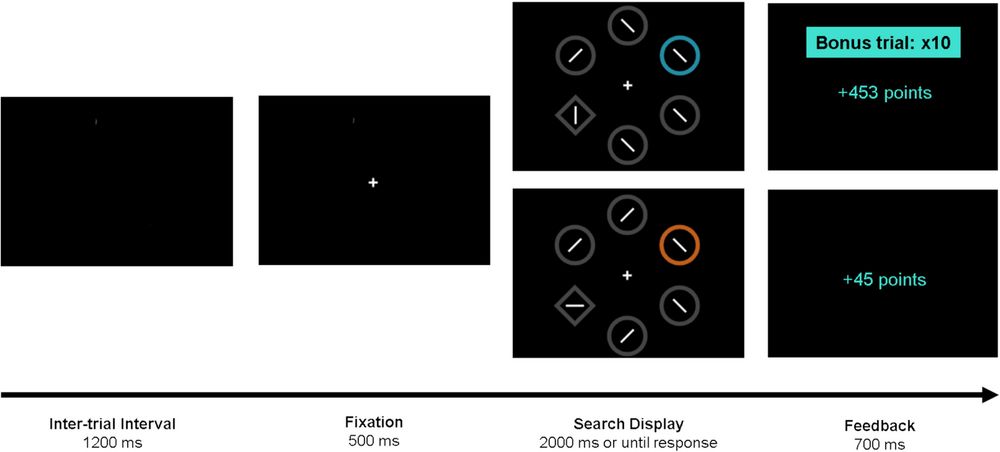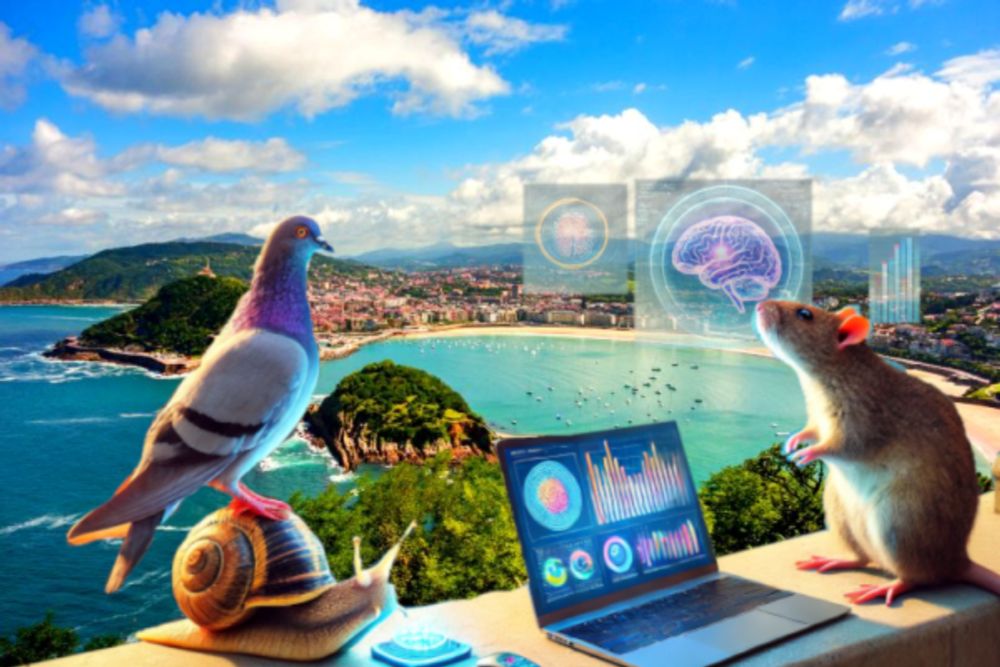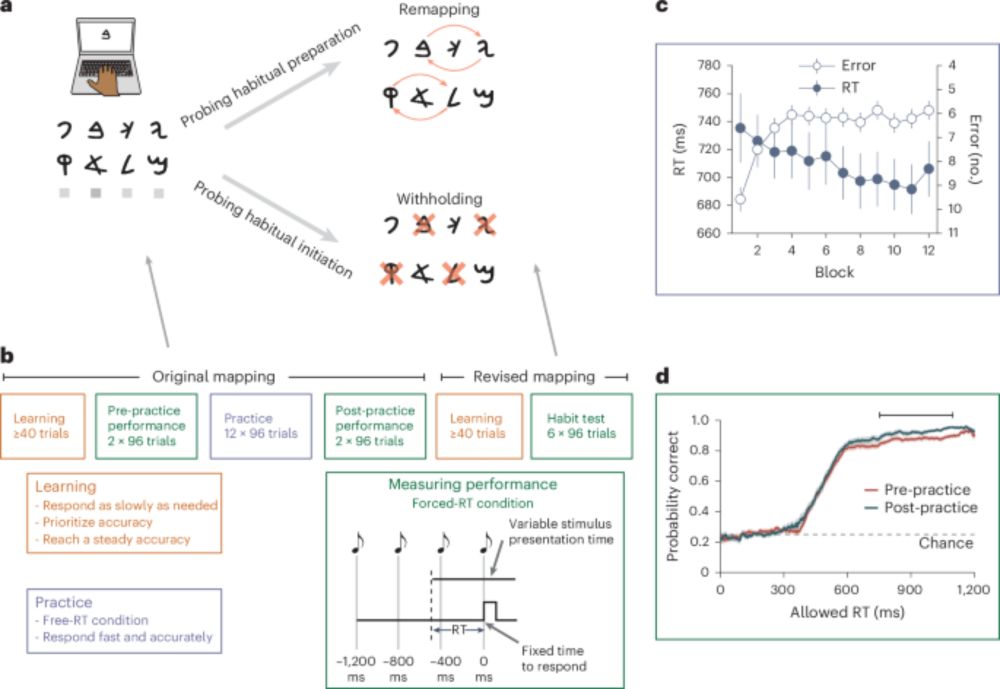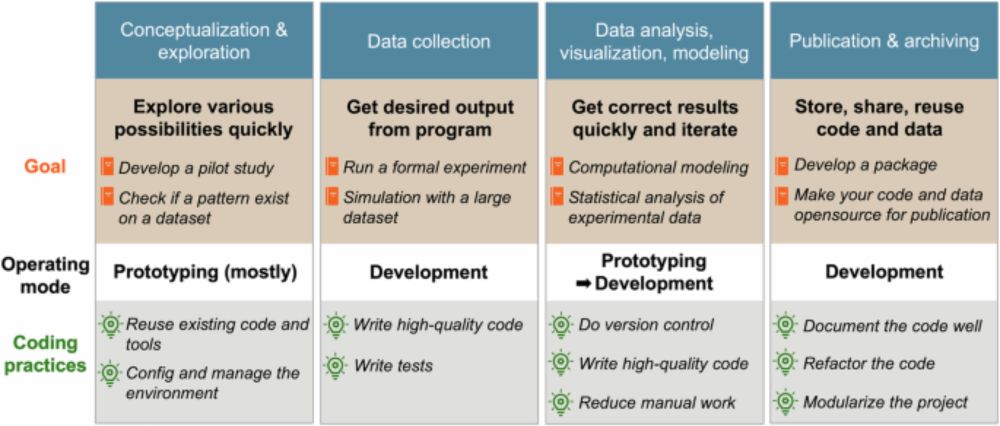Replicating the unconscious working memory effect: A multisite preregistered study: https://osf.io/sj7fz
30.10.2025 17:14 — 👍 7 🔁 5 💬 0 📌 1
A Gentle Push Toward Leading Your First Multisite Registered Report: Resources and Recommendations from an Early-Career Coordinator: https://osf.io/td8ck
23.10.2025 23:13 — 👍 4 🔁 5 💬 0 📌 0
As a PhD student in the lab (with similar funding), I highly recommend this PhD opportunity 🧠 Don’t miss the chance to join our team in Málaga!
23.10.2025 13:50 — 👍 4 🔁 2 💬 0 📌 0

💡 ¡No hagas planes el viernes 26 de septiembre! La #NIGHTSpain llega a #Málaga con una tarde-noche cargada de #Ciencia🧪🔭 para todos los públicos.
📍 Diferentes espacios en el centro
🕠 Desde las 17.30h
👉 Programación: http://u.uma.es/gQm/
19.09.2025 08:41 — 👍 1 🔁 2 💬 0 📌 0
Reminder (now with hashtags):
We are offering a 2-year postdoctoral position at CIMCyC (Granada, Spain) to work on the psychology of dis(mis)information.
Nice environment, great city!
Apply before 26th September.
Please share! 🔃
#socialpsychology
#cogpsyc
#PsychSciSky
#PsychJob
#PhDJob
15.09.2025 07:54 — 👍 2 🔁 6 💬 0 📌 0

👩💻 New preprint out (FIRST one of my PhD journey) with the incredible @lindedomingo.bsky.social @ortiztudela.bsky.social @gonzalezgarcia.bsky.social
"From sudden perceptual learning to enduring engrams: A representational perspective" 🧠
doi.org/10.31234/osf...
12.09.2025 10:54 — 👍 38 🔁 16 💬 1 📌 2
Job Alert!!! We are looking for a motivated postdoc to join a 3-year BBSRC funded project led by my colleague Carl Stevenson (I’m coPI). This multi-disciplinary project will combine in vivo heart rate monitoring and optogenetics with behavioural testing (fear and active avoidance) in rats.
13.08.2025 14:55 — 👍 12 🔁 10 💬 1 📌 4

Expression of Interest in Serving as a PsyArXiv Moderator
As you might have heard, PsyArXiv is having some issues with an increase in low-quality submissions, ranging from AI generated manuscripts to inflate citation metrics, incoherent or nonsensical docume...
PsyArXiv is seeking new moderators to help combat an increase in AI submissions! If you've ever posted a preprint to PsyArXiv, please consider joining. Minimum commitment 1h/month, there's a training session this Monday @ 1pm ET. More info here: forms.gle/9LB1rEtxHAeZ... #PsychSciSky
15.08.2025 17:31 — 👍 75 🔁 91 💬 0 📌 14
A new version of our preprint is now available 👇
link: osf.io/q52wb
05.08.2025 09:34 — 👍 8 🔁 3 💬 0 📌 0
OSF
🚨PREPRINT ALERT🚨
Why do some people get stuck doing things that no longer make sense, or are even harmful? Our new study shows compulsivity isn’t just about weakened goal-directed control; people high in compulsivity also form stronger habits
📄: osf.io/preprints/ps...
#PaperFairy #Habits #CogSci
28.07.2025 13:53 — 👍 56 🔁 16 💬 2 📌 1
New preprint! Habits should get stronger with more practice, right? Well, this crucial result has been difficult to reproduce in human labs. In an instant classic, de Wit (2018) showed 5 failures in obtaining more evidence of habits in conditions with more training -as compared to little trained
24.07.2025 08:57 — 👍 7 🔁 5 💬 2 📌 0
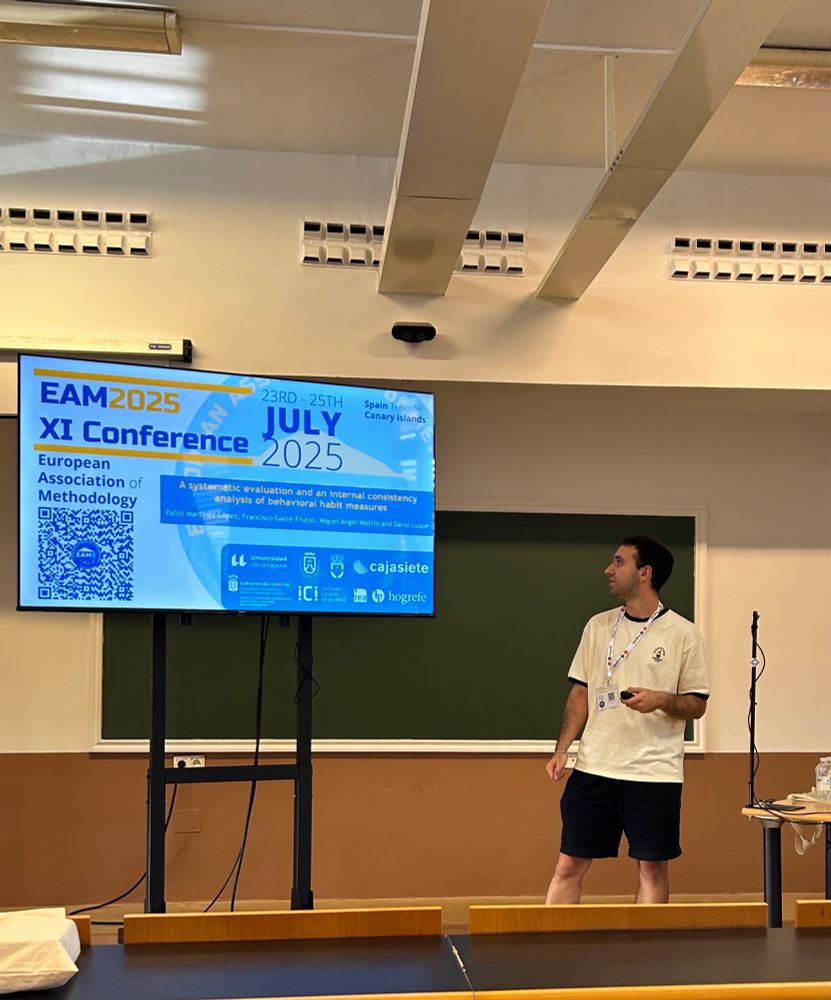
Excited to be speaking about habits at the EAM2025 Conference!
23.07.2025 19:10 — 👍 7 🔁 2 💬 0 📌 0
Programming in psychological science
A practical introduction
🧠💻 We (a bunch of colleagues at @cimcyc.bsky.social) just released a programming guide for psych & cog neuro students. Instead of a tutorial, this is a starting point: a collection of reflections, examples, and recommendations.
👉 Still growing, but ready to explore: wobc.github.io/programming_book/
16.07.2025 14:21 — 👍 43 🔁 28 💬 2 📌 3
The what and when of visual surprise:
EEG shows that high-level visual surprise emerges rapidly and modulates neural responses ~200ms after stimulus onset.
New preprint with @paulapena.bsky.social and @mruz.bsky.social available here: doi.org/10.1101/2025...
Summary 🧵 below
26.06.2025 10:22 — 👍 23 🔁 9 💬 1 📌 0

Hand movements reveal the time course of gender stereotypes during facial categorization - Psicológica
Our prior knowledge of what is about to occur, or […]
New publication! Gutiérrez-Blanco, F., Palenciano, A.F., Ruz, M. (2025). Hand movements reveal the time course of gender stereotypes during facial categorization. Psicologíca 46(2): e17298 psicologicajournal.com/hand-movemen...
17.06.2025 09:29 — 👍 4 🔁 3 💬 0 📌 0
The Degraded Contingency Test Fails to Detect Habit Induction in Humans: https://osf.io/j4ky9
12.03.2025 11:12 — 👍 2 🔁 1 💬 0 📌 1
Don't miss this fresh preprint as well! Checking our experimental tasks is essential to ensure the robustness of our research
13.03.2025 15:45 — 👍 1 🔁 0 💬 0 📌 0
New preprint! In this study, we assessed the reliability and validity of the measures intended to capture the "habit construct" in the forced-response task and the aliens outcome-devaluation task.
w/ Antonio Vázquez-Millán, @frangfr.bsky.social and @davluque.bsky.social
13.03.2025 12:42 — 👍 5 🔁 3 💬 0 📌 2
Cognitive neuroscientist at Trinity College Dublin. Uses neuroimaging to study 🧠 development. Increasingly teaching, thinking, & advocating on the climate & ecological crisis 🌍
ψcóloga, ψcómetra, doctoranda y profe, UAM. 👷♀️Haciendo ciencia entre ruido, error de medida, residuos y desajuste de modelos.🚧 (ella/she)
psychology prof @yale
http://actcompthink.org
Mexican Historian & Philosopher of Biology • Postdoctoral Fellow at @theramseylab.bsky.social (@clpskuleuven.bsky.social) • Book Reviews Editor for @jgps.bsky.social • https://www.alejandrofabregastejeda.com • #PhilSci #HistSTM #philsky • Escribo y edito
PhD candidate. Cognitive neuroscience at the University of Granada @cimcyc.bsky.social #CognitiveControl #Preparation #ProactiveControl #reward #EEG #mvpa
https://orcid.org/0000-0002-6167-9761
Social psychologist, relationships enthusiast, Associate Prof at Western University 🇨🇦.
Prof. Most tweets about R. “Polisci, it’s all about what’s going on.”
http://arelbundock.com
SIPS brings together scholars working to improve methods and practices in psychological science. Join us!
https://improvingpsych.org/membership/
#PsychSciSky #OpenScience
improvingpsych.org
The Cognitive Computational Neuroscience Conference is an annual forum for discussion among researchers in cognitive science, neuroscience, and AI, dedicated to understanding the computations that underlie complex behavior.
https://2025.ccneuro.org
Psicología y ciencia. Psychometrics. Public Toilet scientist. Currently working on interaction of AI and humans
Meta-scientist and psychologist. Senior lecturer @unibe.ch. Chief recommender @error.reviews. "Jumped up punk who hasn't earned his stripes." All views a product of my learning history.
Psychology PhD student & researcher at Trinity College Dublin www.gillanlab.com 🧠 🇮🇪 | @UnivofTehran Clinical psychology alumnus 🇮🇷 | An ultimate foodie researching cognitive underpinnings of habitual behaviours and addiction 🧠 💊 💉 🚬
Cognitive & Mental Health Researcher 🧠
Post-doc @ University of York | PhD @ Trinity College Dublin
➡️ https://sites.google.com/view/kellyrdonegan
Clinical psychology researcher | applied statistics geek | so called #RStats influencer
Cognitive Neuroscientist @ University of Granada
https://ugr.es/~cgonzalez/
Post Doctoral Fellow - Cognitive Neuroscience
Vera - Granada - Cambridge
Advancing cognition
www.psychonomic.org
Psychologist who studies and writes about human nature—including morality, pleasure, and religion. Sustack: https://smallpotatoes.paulbloom.net/
Assistant Professor at University of Nottingham, interested in learning and memory.
PhD Student in Experimental Psychology (University of Malaga)
